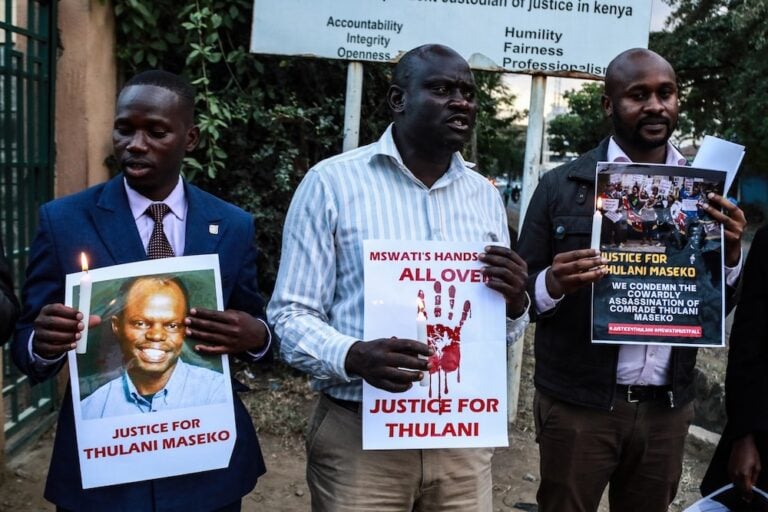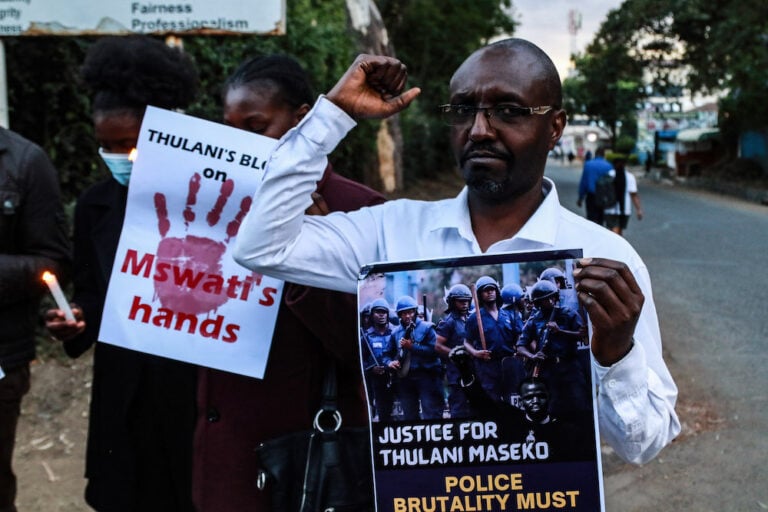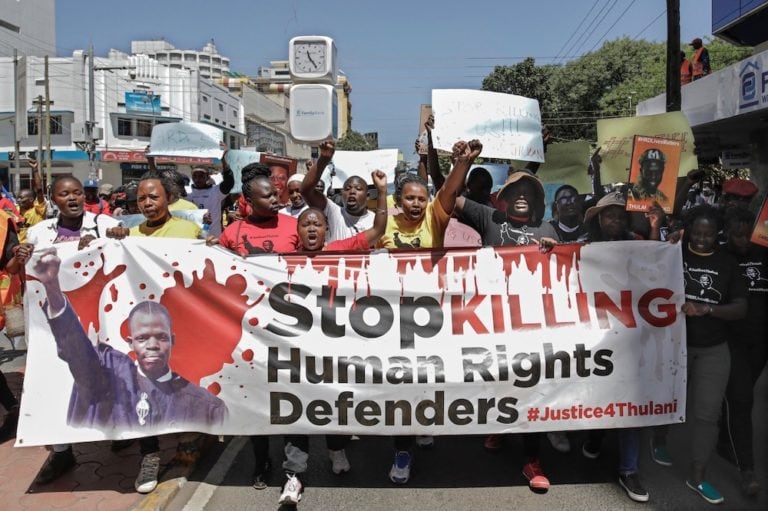The high court of Swaziland awarded damages of 550,000 lilangeni (41,000 euros) against the Times of Swaziland. The record sum is tantamount to a death sentence for the country’s only privately-owned daily.
This statement was originally published on rsf.org on 11 December 2014.
Reporters Without Borders condemns the exorbitant libel damages that the high court awarded last week against the Times of Swaziland. The record sum of 550,000 lilangeni (41,000 euros) is tantamount to a death sentence for the country’s only privately-owned daily.
The court awarded the damages on 3 December to senate president Gelane Simelane-Zwane in connection with a May 2009 article reflecting debates about whether she was a Simelane family member by birth.
“This damages award, the largest ever made against a Swazi publication in a libel case, is out of all proportion to the harm the newspaper is alleged to have caused the plaintiff, said Cléa Kahn-Sriber, the head of the Reporters Without Borders Africa desk. In the light of the financial situation of Swaziland’s media, one can only regard this exorbitant award as a government attempt to throttle the country’s only independent daily. We call for this ruling to be overturned as its sole aim is to gag the media.”
According to the Media Institute of Southern Africa, the award is twice as much as what the plaintiff, Ms. Simelane Zwane, originally requested. This is indicative of a desire on the part of the authorities to persecute the Times of Swaziland and the country’s media in general.
Evidence of this was already seen early this year in the contempt of court proceedings that supreme court chief justice Michael Rambodibedi brought against The Nation editor Bheki Makhubu. Mpendulo Simelane, a judge who is himself an interested party in the case, refused to grant bail to Makhubu on 5 December on the grounds that he might flee, although it was Makhubu who turned himself into the police when he was arrested in March.
Africa’s only absolute monarchy, Swaziland is ranked 156th out of 180 countries in the 2014 Reporters Without Borders press freedom index.


